Teológia a falzifikácia
Začnime parabolou. Je to parabola odvodená od príbehu, ktorý rozpráva John Wisdom vo svojom vyhľadávanom a priekopníckom článku s názvom Bohovia. Stretnú sa dvaja cestovatelia na rúbanisku v džungli.
More...We kindly inform you that, as long as the subject affiliation of our 300.000+ articles is in progress, you might get unsufficient or no results on your third level or second level search. In this case, please broaden your search criteria.
Začnime parabolou. Je to parabola odvodená od príbehu, ktorý rozpráva John Wisdom vo svojom vyhľadávanom a priekopníckom článku s názvom Bohovia. Stretnú sa dvaja cestovatelia na rúbanisku v džungli.
More...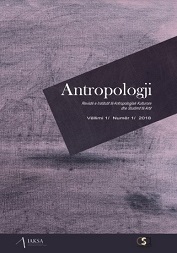
The anti-religious policy of the Albanian totalitarian state recognizes three phases. If the first phase was determined by a surplus of State violence and its mechanisms of terror and the second phase by delegitimizing policies of the religious institutions and clergy, in the third phase, State’s anti-religious policies were installed on a disciplinary level through the method of scientific atheism, aiming at scientific liquidation of the religious spectrum in Albania. During the dictatorial period, especially after 1967, Albanian socialist ethnography has contributed to the profanation of the Albanian mythological configurations, rites and practices, by serving the Albanian State’s atheistic programmatic, which aims at creating the one-world man.
More...
Wolterstorff (2009) provides an important explanation to the question: What caused the surprising resurgence of philosophical theology that has occurred over the last 50 years—a resurgence that rivals its zenith in the Middle Ages? This article supplements that with a more fine-grained answer to the question. Recent discoveries in Arthur Norman Prior’s correspondence with J.J.C Smart and Mary Prior, between November 1953 and August 1954 on the possibility of necessary existence, demonstrates the importance of Prior’s discussion of the Barcan formulae in Time and Modality (1957) for the resurgence of analytic theology. The correspondence establishes that Prior’s discovery of tense-logic, and his discussion of quantified tense-logic constituted the perfect opportunity for him to challenge key anti-metaphysical assumptions in analytic philosophy, from which four important consequences can be drawn for the resurgence of philosophical theology. First, Prior’s discussion of time and existence challenged the idea of Russell (1945) and Findlay (1948) on the logical status of a necessary existing being. Second, the discussion challenged the Analytic school’s view of analysis and gave Prior the opportunity to introduce a different perspective on the relationship between logic and metaphysics. Third, it gave Prior a good opportunity to demonstrate that the then-prevailing attitude towards medieval logic was wrong. Fourth, it made it possible for Prior to demonstrate that the highly surprising metaphysical conclusions of quantified tense-logic brings modern logicians into a discussion with the theologically minded medieval logicians.
More...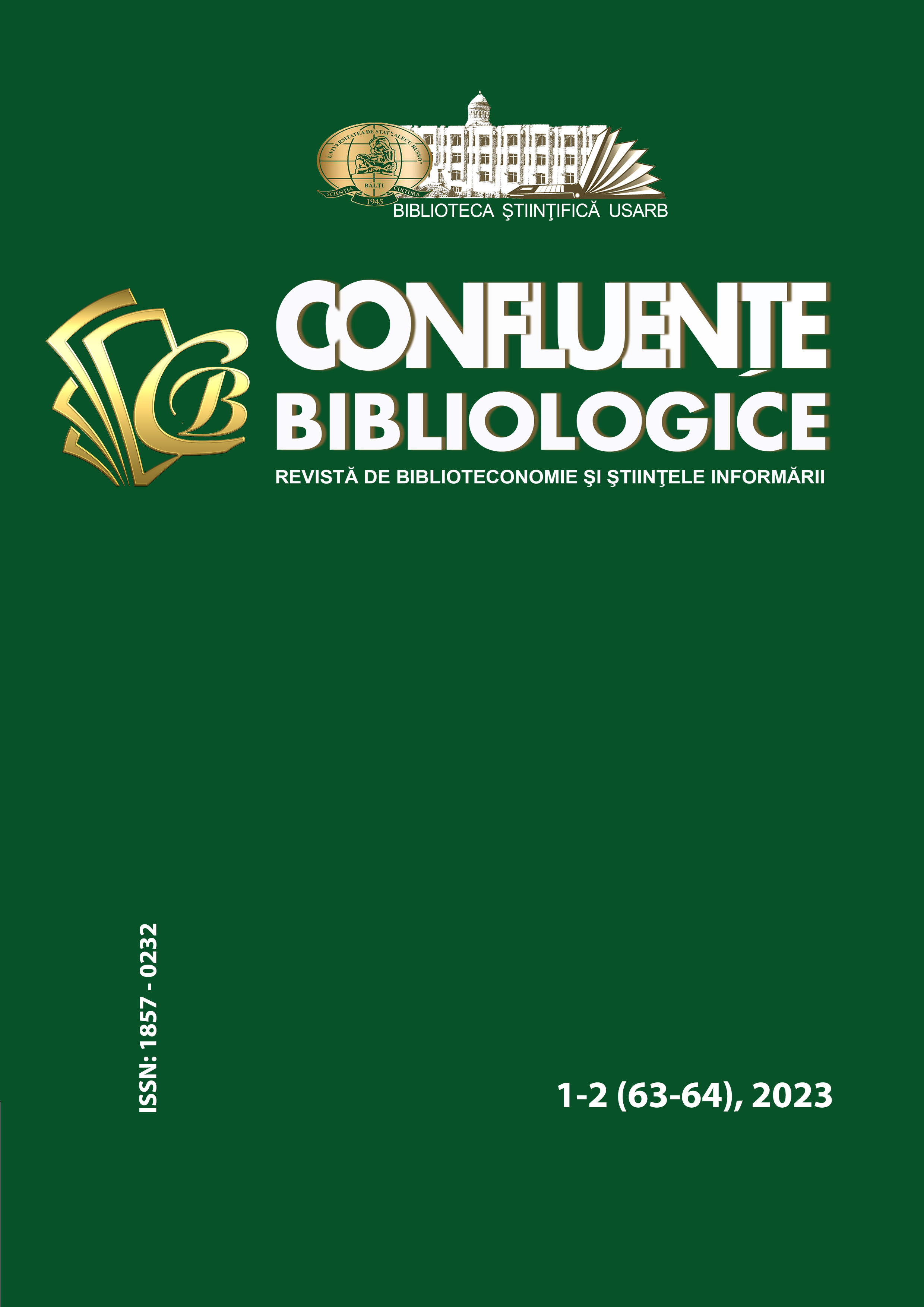
The given article tells about the importance and purpose of prayer in human life. The meaning of the word prayer is specified, the types of prayers are listed,d and the provisions of the so-called Alphabet of spiritual life that must be respected by every Christian.
More...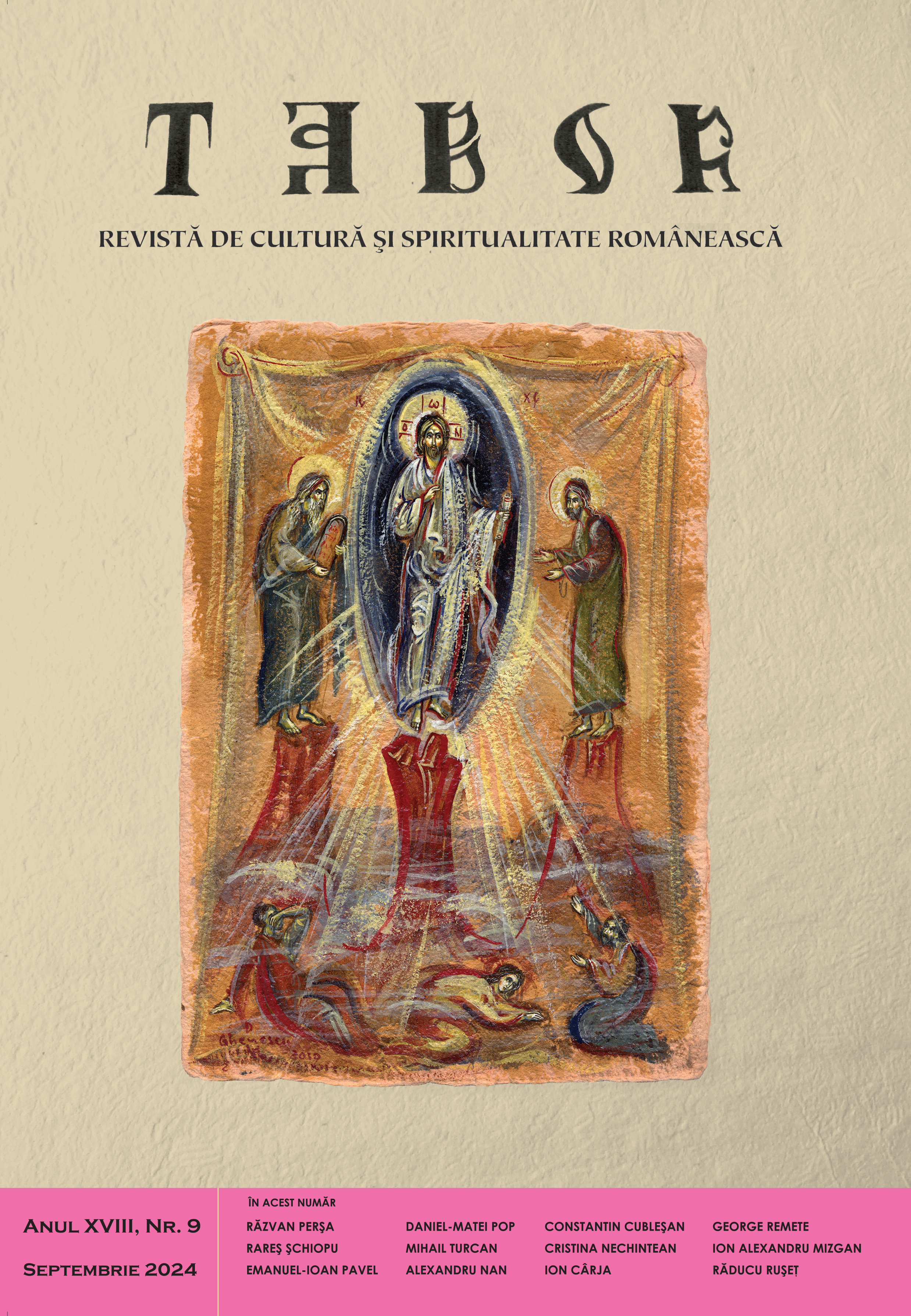
The article presents Samuil Vulcan, Greek-Catholic bishop of Oradea, based on a recent volume of his writings, edited by Mircea Popa. His theological work, comprising pastorals letters and sermons addressed to simple people, the Romanians of his diocese, is a deeply religious one, in the spirit of the teaching books of other great Christian pastors before him, from the country’s olden days, but no less a continuous plea for the moral education of the people. Bishop Samuil Vulcan is one of the illustrious figures of Romanian scholars that Transylvania gave to our national culture.
More...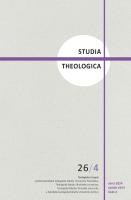
This study aims to present the soteriological categories by which Scheeben explains the salvific work of Jesus Christ, which, together with the primary purpose of the Incarnation, are key to understanding the doctrine of salvation of any given theologian. The author of the study first focuses on the contemporary context of Scheeben’s soteriology and its main features. Next, there is a consequent discussion of an important point of reference for the entire soteriology, which is the primary purpose of the Incarnation and the effects of salvation. In the third, central part, the author focuses on soteriological categories, first in general and then in a discussion of five selected concepts. What emerges from the examination is that Scheeben clearly distinguishes, but does not dissociate, between the negative and positive aspects of the salvific significance of Christ’s work and especially his death and seeks to link Christology and Soteriology with the mystery of the Holy Trinity, which is related to the notion of the primary purpose of the Incarnation. Another contribution is a critique of the Anselmian satisfaction theory, which is not rigorous, however, and does not carry its last consequences. The positives anticipate further developments in dogmatic theological reflection. The negatives of Scheeben’s reflection lie mainly in its polysemy, in the not always easy to grasp pile up of different categories, and in the mixing of the various descriptions of the connection between Christ’s life and death on the one hand and the effect of salvation in us on the other.
More...
The parable of the ten virgins is generally considered to be as the most ambiguous parable of Jesus in terms of its origin and meaning. Researchers wonder: can be viewed its context in Matthew’s little apocalypse as the very first interpretation of the early church? Is it a genuine, composite text or more a compilation of traditions at all? While these are relevant questions, this paper pays more attention to its final form. The research attempts to reasess its significance through anthropological interpretation. The analysis will address the five main issues of the parable: the relevance of the oil, the human choice, the time of man, the foolishness and cleverness of man, and virginity.
More...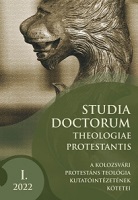
The Christian view of man is often intertwined with the philosophical idea of homo viator (pilgrim man). Gabriel Marcel, the father of Christian existentialism, attempts to weave together the relevant strands of religion and philosophy in his book Homo viator: Introduction to the Metaphysics of Hope. We often interpret the lifespan of a few decades on Earth as a journey, a wander. This observation has led to a number of questions: from where did we come from and where will we arrive? If we are passing travellers, how should we relate appropriately to the world and to those who are travelling with us in the same time and space? And in what sense does Peter’s first letter call his addressees “aliens” and “exiles” (1 Peter 1:1; 2:11)? This presentation will highlight the context of Peter’s first letter in which the author provides an eschatological grounding for Christian identity. Yet, this identity, in turn, can be understood not only in the theological tradition of the people of Israel, but also in the new existence in which we can participate through baptism. The cornerstone of this identity is found in 1 Peter 2:2: “Like newborn infants, long for the pure spiritual milk, that by it you may grow up into salvation”(ESV). As we shall see, the petrine context intersects with, and at some point surpasses, the issues raised by the philosophical aspects of homo viator.
More...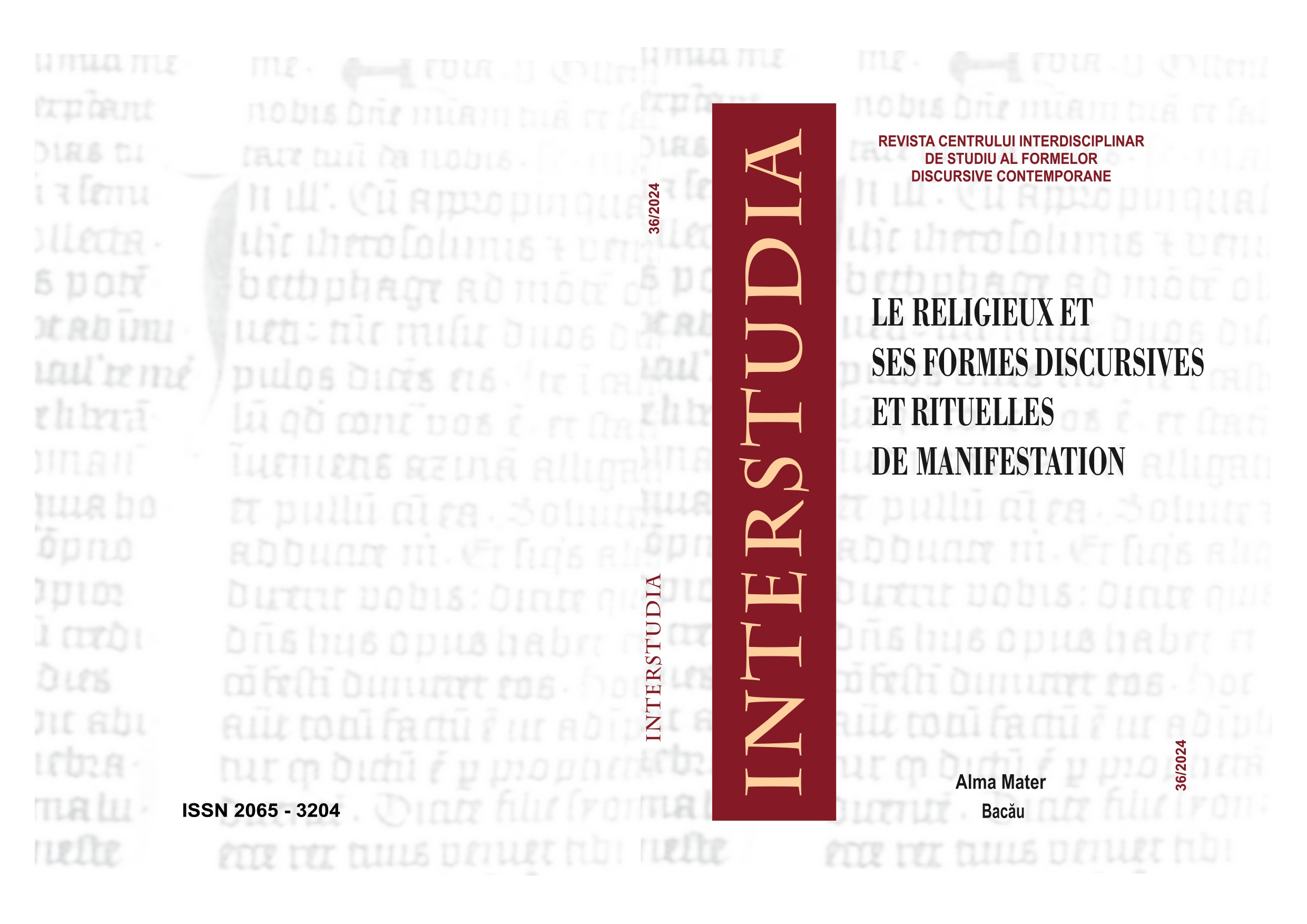
Plurilingualism, technology and religious translation. Three concepts that are so different and yet so interconnected. What is the connection between these terms? Does the positioning of the term technology as a median between the other two achieve a unity in which one term cannot exist without the other, at least in the sphere of educational science? Why and how has artificial intelligence been integrated into the learning and translation process? In this article, we'll discover the main obstacles that lead to superficial learning of a specialized language, in particular that of French religious terminology, and at the same time we'll uncover the effects of using artificial intelligence in the accomplishment of school tasks. The information will be validated by translations obtained by the high school students from texts containing religious terminology. During the correction and verification of the proposed elements, there were some very surprising answers, confusions in the translation of terms, due to the knowledge of several foreign languages and the use of artificial intelligence.
More...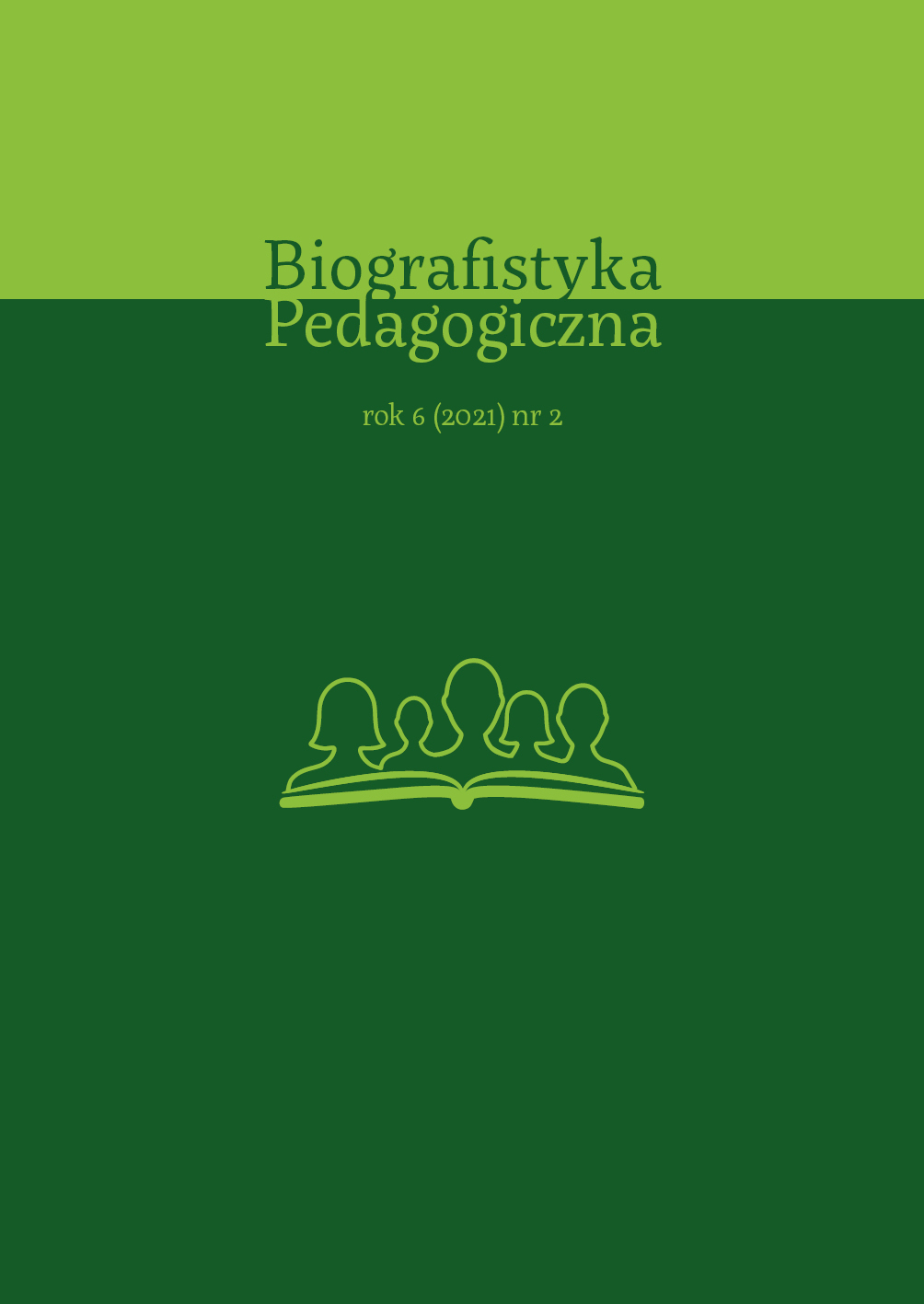
Celem niniejszego artykułu jest przybliżenie sylwetki Emmy Nicolay de Caprile – pochodzącej z Polski wybitnej nauczycielki, pionierki argentyńskiego systemu edukacyjnego. W Polsce jest to postać zupełnie nieznana, więc publikacja stanowi uzupełnienie pewnej luki w badaniach nad emigracyjnymi losami Polaków, tym bardziej, że Nicolay de Caprile była i jest nadal ambasadorem polskości, bowiem Argentyńczycy mają świadomość jej korzeni. W rozważaniach odwołamy się do kontekstu historycznego, omówimy etapy kształtowania się argentyńskiego systemu edukacyjnego w drugiej połowie XIX wieku. Na tym tle ukażemy nie tylko biografię Emmy Nicolay de Caprile, ale przede wszystkim jej rolę w propagowaniu edukacji dziewcząt, omówimy też sygnalnie zaproponowaną przez nią metodę nauki czytania i pisania, dzięki której poziom analfabetyzmu w Argentynie znacząco się zmniejszył. Podstawę dla naszych rozważań stanowi korespondencja Nicolay de Caprile z ówczesnym prezydentem Argentyny Domingo Faustino Sarmiento, zgromadzona w Archivo Histórico de la Escuela Normal Nº 1 w Buenos Aires, wspomnienia uczennic oraz materiały zarówno z argentyńskiej, jak i polonijnej prasy.
More...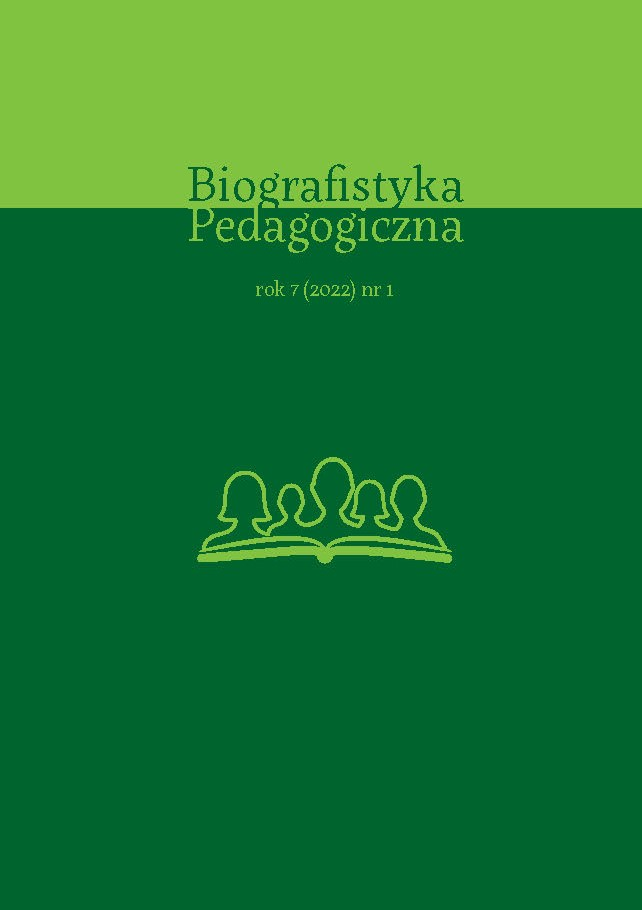
Omówiono procedurę habilitacyjną wybitnego polskiego patrologa, ks. Wincentego Myszora (1941-2017). Badacz biblioteki z Nag Hammadi związany był przez lata pracą badawczą i dydaktyczną z Akademią Teologii Katolickiej w Warszawie (obecnie Uniwersytet Kardynała Stefana Wyszyńskiego) i Uniwersytetem Śląskim w Katowicach. Spuścizna przekazana przez ks. W. Myszora do Archiwum Archidiecezjalnego w Katowicach umożliwiła zaprezentowanie nieznanych dotychczas faktów dotyczących kariery naukowej darczyńcy, w tym tych na temat habilitacji otrzymanej w 1982 r. Opisano działania przygotowawcze, przybliżono treść dwóch odnalezionych recenzji dorobku habilitanta, tok kolokwium i procedury wieńczące starania o uzyskanie stopnia naukowego.
More...
Celem artykułu jest przedstawienie Joanny Pąk, współczesnej poetki od urodzenia chorującej na MPD (mózgowe porażenie dziecięce). Dzięki wsparciu rodziny oraz silnej woli i determinacji ukończyła nie tylko szkołę podstawową, ale również liceum i studia wyższe. Pisze prawą stopą, opublikowała 13 tomików poezji, współprowadzi stronę na Facebooku „Łam stereotypy - o sprawnych inaczej”, czy własną stronę autorską, posługując się tą samą platformą. Jej postawa może być inspiracją dla wszystkich osób, nie tylko z niepełnosprawnością. Celem prezentacji sylwetki Joanny Pąk, odwołano się do twórczości poetyckiej, działalności w mediach społecznościowych oraz innych materiałów dotyczących jej aktywności w przestrzeni publicznej, które stanowią realizację w praktyce koncepcji twórczych orientacji życiowych oraz cripową kontestację stereotypów na temat niepełnosprawności.
More...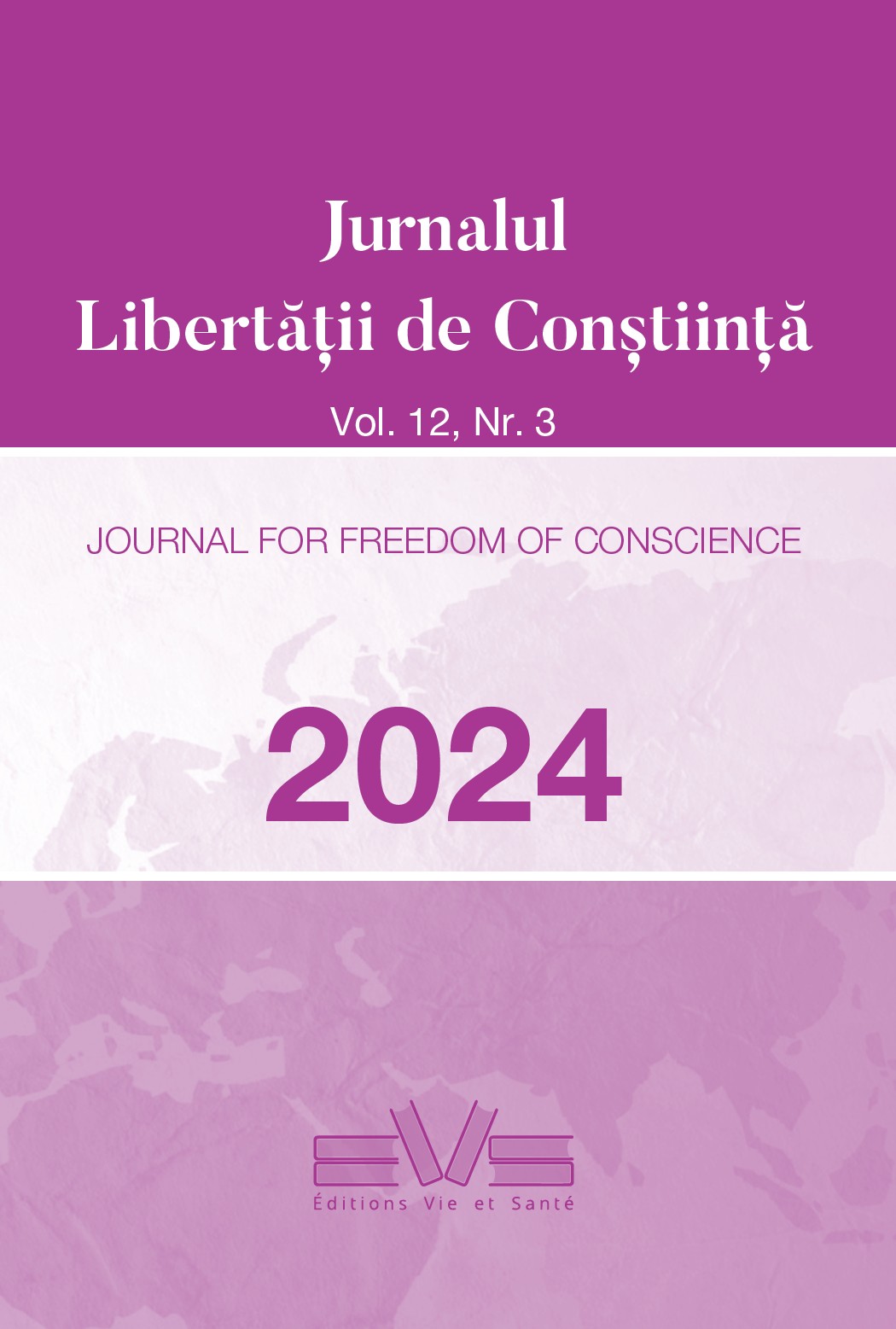
The analysis examines the trajectories of violence among religious groups in Romania, focusing on conflicts between Orthodox and Greek Catholic communities and between Orthodox and neo-Protestant communities. Forms of verbal, psychological, physical, and spiritual violence were tracked based on definitions provided by Romanian legislation. The research hypothesis posits that the intensification of secularization and anticlericalism has contributed to the reduction of violence between Orthodox and Greek Catholic/neo-Protestant communities in Romania from 1990 to 2023. In Orthodox-Greek Catholic conflicts, the central issue is patrimonial, while tensions between Orthodox and neo-Protestant communities stem primarily from proselytism and the migration of believers. Notable reductions in violence are observed, particularly after 2007, when secularization and anticlericalism became common adversaries for religious groups. The study analyzed all U.S. Department of State Reports on Religious Freedom in Romania, reports y the State Secretariat for Religious Affairs, Synodal reports of the Romanian Orthodox Church, all issues of Vestitorul Ortodoxiei and Biserica Ortodoxă Română, as well as 112 articles on religious conflicts from local and national media from 1990 to 2023. Numerous semi-structured interviews were conducted with Baptist, Adventist and Pentecostal pastors, between October 2023 and March 2024.
More...
In a time of the „clash of civilizations”, issues of cultural and religious diversity are becoming increasingly evident. As societies become more ethnically, culturally and religiously complex, contemporary education needs to focus on building a collective consciousness based on tolerance. At the same time, education should not be limited to academic knowledge, but should also develop critical thinking skills and the ability to resolve conflicts through dialog. The ability to understand and navigate diversity is not just a theoretical tool, but a practical necessity, given the political and social challenges facing modern societies.
More...
In current religious pluralism and extreme individualism, it is imperative that religious education transmit the real and authentic values that form the future generations. Children need answers to their problems. The topic of suffering is one of them, because they have their own teodicee when dramatic events happen in their life. Sickness, loss of loved ones, poverty, lack of authentic relationships are just few of the problems that affect children and the mission of state and church is to help them overcome it. The trio coordination parent-teacher-pastor/priest I think is the most effective way that children understand their suffering and overcome it. For this purpose, story of Job is a unique tool for Children Bible and for school curriculum.
More...
In a world increasingly defined by isolationist values and ideological extremism, the question of how to foster a sense of unity and shared purpose is pressing. Political policies and economic structures certainly influence societal well-being, but they often lack the moral and ethical frameworks needed to address issues like individualism and extremism at their core. The Bible and theological higher education, by contrast, offer an alternative approach, encouraging community-centered values, critical engagement with belief systems, and an ethos of compassion. Through this essay the author explores the unique role of the Bible and theological higher education in counteracting the spread of individualism and extremism, while also examining why political and economic measures may provide limited assistance in achieving these ends.
More...
The study analyzes Bertrand Russell’s criticisms of Christianity, focusing on two major themes: the rejection of free will and the portrayal of Jesus as a morally imperfect figure. The first part explores Russell’s biographical and intellectual context, highlighting the formative influences that shaped his skepticism toward religion and his conviction that reason is the sole valid source of truth. The second part examines Russell’s stance on free will, which he considers an illusion driven by desires caused by antecedent factors, implying that this position primarily reflects a personal inclination based on his methodological presuppositions. The final section addresses Russell’s critiques of Jesus’ teachings,including the alleged major eschatological error and the doctrine of eternal hell, demonstrating that, while influential, these critiques are simplistic when compared to the complexity of the biblical text and its theological context.
More...
Starting from the definition of biblical education, continuing with the presentation of the role of the Bible in education and with the exposition of the biblical values and principles promoted through education, we will try to debate the effectiveness of biblical education in the context of religious pluralism, as well as in the context of both extreme individualism and religious extremism. The research supported by this article aims to bring to the fore the role of biblical education in cultivating a healthy balance in the aforementioned contexts. The definition of terms and contexts, respectively, was an essential step in the research. Both religious pluralism and extreme individualism, but also religious extremism are concepts frequently encountered in contemporary society, which is why it is necessary to understand them. In this way, it is possible to open the discussion about biblical education as a factor in human development and in the development of interpersonal relationships, as well as its integration into different contexts.
More...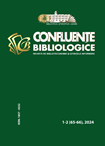
The article explores the profound connection between people and religious music, highlighting its significance in the activities of the Romanian Orthodox Patriarchate during the Commemorative Year of Hymnographers and Church Singers. Sacred music, rooted in folk art, represents a symbiosis between Eastern and Western cultures, characterized by modal melody, harmony, modal polyphony, and captivating heterophony. Christian Orthodox music is perceived as a means through which believers draw closer to God, influencing their emotions and thoughts. The article addresses and proposes initiatives for revitalizing church musical traditions, including the establishment of a Faculty/Academy of Religious Music and the creation of a Church Singers’ Association. The importance of developing a Dictionary of Religious Music and a National Catalogue of Church Music Publications is emphasized, as well as the need for training courses and the promotion of events dedicated to religious music singers. The article also highlights the role of church singers in establishing parish libraries, church museums, and Sunday schools, emphasizing their importance in the pastoral, missionary, and social activities of the community.
More...
The presence and involvement of priests’ wives in family life and the parish community is a fundamental aspect of the tradition and organization of the Romanian Orthodox Church. They are viewed as vital support for both the priest and the community, fulfilling multiple roles and responsibilities. Priests’ wives undertake a wide range of activities, from maintaining harmony within the family to coordinating various events and activities within the parish. Through their personal example and active participation, they serve as role models for the community and provide essential support for the spiritual mission of the priest and the Church as a whole.
More...